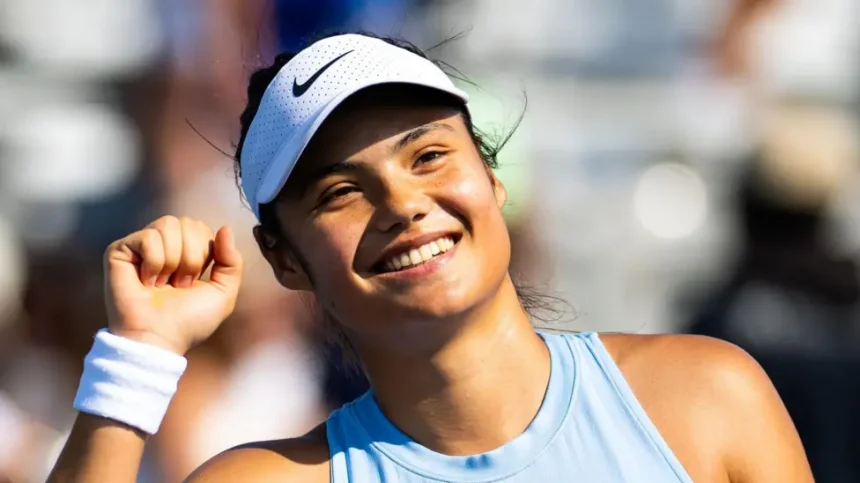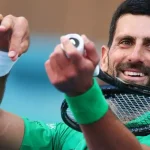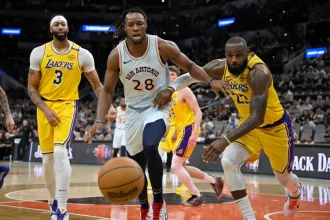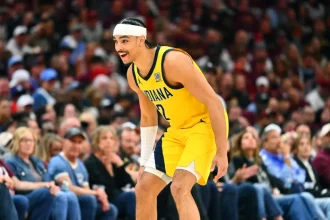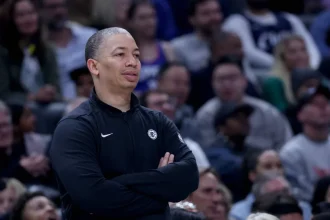Emma Raducanu has never been one to shy away from doing things “a little bit differently,” and it’s no surprise that she’s reached her first WTA 1,000 quarter-final without a full-time coach.
The British number two secured her fourth consecutive win at the Miami Open on Monday, defeating American 17th seed Amanda Anisimova. This marks the first time since her fairytale US Open victory in 2021 that the 22-year-old has won four matches in a single tournament.
Raducanu, ranked 60th in the world, explained her approach, saying, “I’m a bit of a free spirit, so I don’t need restrictions or being told what to do. I think when I’m being really authentic, that’s when I play my best.”
As she prepares to face US Open finalist Jessica Pegula in Wednesday’s quarter-final, we explore how Raducanu is thriving without a full-time coach.
What’s Changed for Raducanu?
Whether it’s winning a Grand Slam as a surprise qualifier, cycling through coaches, or adjusting her schedule to fit her needs, Raducanu has always chosen what feels right for her. This often means making bold decisions, some of which haven’t always paid off, but she remains committed to staying true to herself.
Her decision to part ways with Slovakian coach Vladimir Platenik just before this tournament was initially met with surprise, but her impressive run in Miami—on a surface that suits her style—suggests it was the right call.
Raducanu has played with a newfound freedom and confidence, something not seen consistently since her stunning US Open triumph. “I feel when I’m boxed into a regimented way, I’m not able to express myself in the same way,” she told Sky Sports.
In Miami, she’s been guided by Mark Petchey, a familiar face from her teenage years, who previously coached Andy Murray. Petchey has been providing coaching advice and feedback from Raducanu’s box, while long-time ally Jane O’Donoghue and fitness trainer Yutaka Nakamura round out her support team.
Raducanu describes her approach this week as “different,” with a focus on having fun, shortening practice sessions, and embracing less intense warm-ups. “This week has been a great eye-opener to just when I’m happy and expressive and myself,” she said.
Does She Need a Full-Time Coach?
Raducanu’s revolving door of coaches has often made headlines, with varied reasons for their departures. After parting ways with her fifth coach in two years in 2023, she attributed the high turnover to her “provoking” and “challenging” questions.
When she returned from wrist and ankle surgeries in 2024, she worked with childhood coach Nick Cavaday, providing stability until his health issues led to the end of their partnership in January. Raducanu’s father then arranged for Platenik’s coaching, but her recent success in Miami has sparked questions about whether she even needs a full-time coach.
While it’s rare for top players to compete without a coach, Nick Kyrgios, who reached the 2022 Wimbledon final without one, recently remarked that coaches are “overrated.” He also pointed out how quiet people have become about Raducanu’s success.
Raducanu seems open to finding a full-time coach, but the availability of suitable candidates is limited with much of the season already underway.
Petchey, who is balancing his role in Miami with his TV commentator duties, is described as a “familiar face” providing support for now, though it’s unclear how long the arrangement will last.
Tim Henman, former British number one, believes Petchey’s involvement “makes sense” given his knowledge of Raducanu’s game. He adds, “It’ll be interesting to see how long it lasts. Emma has been vocal about switching coaches, and that’s her prerogative.”
Can Raducanu Maintain Her ‘Competitive Spirit’?
Raducanu’s resilience has often been questioned due to the injuries and challenges she’s faced since her US Open win. This season has been no different, with a back injury disrupting her pre-season and a traumatic stalking incident in Dubai.
However, her gritty performances in Miami—beating world number 10 Emma Navarro, McCartney Kessler, and Anisimova, who were all hindered physically—have shown that her competitive spirit is back. “I think that’s been missing in the last few months and even the last few years at times,” Raducanu admitted.
Looking ahead, the challenge will be maintaining her level of play over a longer period, something she’s struggled with in the past. Henman points out that Raducanu has played more tournaments this year—seven already—than in previous seasons, which could explain her improved durability.
After Miami, she will re-enter the top 50 for the first time since August 2022. Henman sees this as a positive step, saying, “It’s easy to look at the results, but I’d focus more on the journey of tournament play—that’s a big, big positive. No doubt she’s a great player and should be knocking on the door of the top 30, maybe even top 20 if she stays healthy.”


